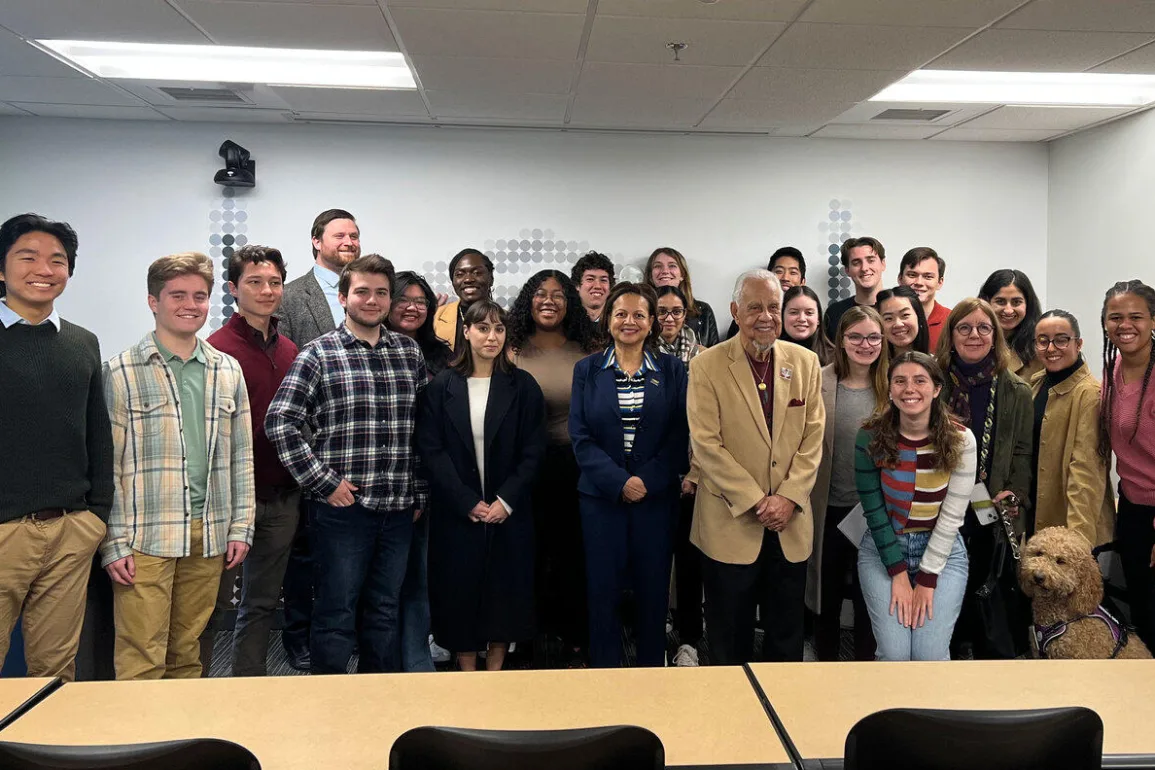Their professor is James Hohmann, a columnist at the Washington Post who studied history at Stanford and specializes in domestic policy and politics. The course is part of a Washington-based program for the California school, and in Wilder – the nation’s first elected African-American governor and namesake of Virginia Commonwealth University’s L. Douglas Wilder School of Government and Public Affairs – the visitors welcomed a singular voice in modern politics.
Wilder shared his recollections and perspective about the state of leadership, both local and national, as well as the changes and challenges of good governance. He framed his remarks in part through reflecting on his campaign travels across Virginia ahead of the 1989 election, including a focus on grass-roots democracy, visiting rural areas and staying in the homes of citizens instead of hotels.
“I never had one incident in which anybody ever refused the entrance to their establishments,” Wilder told the students. “I never had a single instance when anyone refused to shake my hand or talk to me or to grant me the opportunity” to speak with them.
Hohmann outlined in his course syllabus that “politics is as much art as science. We will pull back the curtain on how the nature of campaigns, along with media coverage of American politics, is changing.” Wilder knows from experience how such evolutions can occur.
Wilder emphasized to students that he didn’t campaign by identifying as a Black American. A decorated Korean War veteran, he attributed his historic election to a commitment to transcend racial and socioeconomic lines and to being representative of broad populations. His platform recognized that the people’s needs and experiences always must be positioned at the forefront.
“That doesn’t mean you’ve got to run for office,” he said. “Criticize what is wrong. Make certain those that represent you are doing it, or else vote them out without apology.”
Susan Gooden, Ph.D., dean of the Wilder School, shared with the students her recollection of Wilder’s election.
“I remember that vividly because I wasn’t much older than you all,” she said. “I was a student at Virginia Tech when that election occurred. And as you’re building up to that election – the momentum, the engagement – people were watching this election literally across the world. … Every time I speak with the governor and hear him talk, I learn something that I didn’t know.”
As governor, Wilder’s achievements included establishing a state rainy-day fund to respond to crises and unforeseen circumstances. He was lauded by Financial World magazine for two consecutive years for leading the best-managed state in the nation. He also persisted in advocating for a state holiday honoring civil rights leader Martin Luther King Jr.
Wilder’s campaign experience is extensive, covering his elections as a state senator, lieutenant governor, governor and later as mayor of Richmond. Fielding questions from students, he explored a range of topics, including his campaign strategies, the importance of taking strong stances and current critical issues. And he noted that most concerns of citizens are perennial, so effecting change for their benefit is essential as a leader.
Wilder highlighted the significance of democracy in action and challenged the students to impact their communities.
“You guys got a lot of work to do, a whole lot of work to do,” he said. “And you can make yourselves felt wherever you are.”
Subscribe to VCU News
Subscribe to VCU News at newsletter.vcu.edu and receive a selection of stories, videos, photos, news clips and event listings in your inbox.


